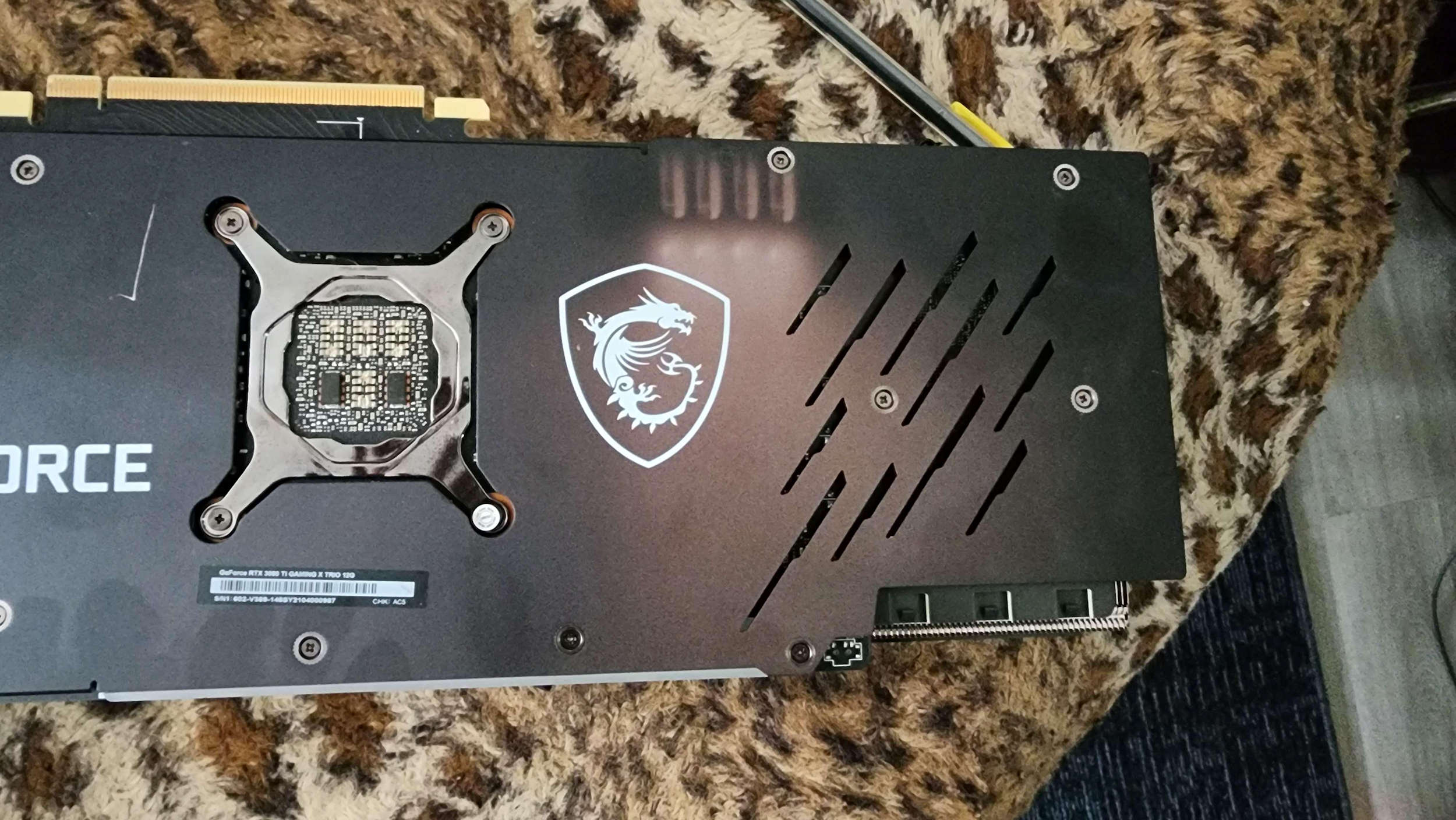It's not just OLEDs that can suffer from burn in. Your graphics card's backplate might suffer from it too
My retinas at night know the feeling.

Of all the issues that afflict PC gamers, whether it's a dodgy driver, excessive fan noise, a buggy game patch or OLED burn-in, I would not have put the photodegradation of a GPU backplate in the top 100 of potential issues.
But apparently, it's a thing. Two users on Reddit (via Videocardz) reported some photodegradation appearing on the backplates of different graphics cards. The discoloration closely matches the patterns you'd expect to see from an adjacent set of memory modules equipped with RGB lighting.
The speculation is that the RGB lighting in question reacted with the coatings used on the backplates of the cards. It doesn't appear to affect a specific card, as the reports show the phenomena affecting MSI and Gigabyte cards (followed later by an Asus card). Rather, it seems to be related to the accompanying memory kit's RGB LEDs.
Now I'm not a materials engineer, and even if I was, I wouldn't want to speculate too much without specific knowledge of the LED's emission spectrum, or the materials used on the backplates themselves. However, years of exposure to UV light could be an explanation.

Best CPU for gaming: The top chips from Intel and AMD.
Best gaming motherboard: The right boards.
Best graphics card: Your perfect pixel-pusher awaits.
Best SSD for gaming: Get into the game ahead of the rest.
It makes some sense. If you leave a shirt out in the sun, it gets blasted by the sun's UV light, and will fade quickly. Something similar appears to be happening here. Luckily, this does not seem to be a widespread issue. If it were, millions of owners of PCs equipped with RGB lighting would be reporting similar issues.
My assumption (and you know the old cliche about assumptions) is that there are some memory modules out there with low quality or faulty LEDs emitting light they are not supposed to.
There's another aspect to consider. It's one thing to end up with some cosmetic damage over years of use—perhaps 24/7 use—but it's another to look into a brightly lit RGB system at night time and get your retinas scalded with dodgy light.
The biggest gaming news, reviews and hardware deals
Keep up to date with the most important stories and the best deals, as picked by the PC Gamer team.
It'll be interesting to see if this issue becomes more widely reported. There's no word from the users about a certain memory kit or batch, but if there indeed is a faulty batch of otherwise fully functional RGB LEDs out there being used by memory manufacturers, we might see more of this in the future.
Now if you'll excuse me, I'm about to check out the RTX 4060 in my daily system to see if it's got any marks caused by some G.Skill Royal DDR4 memory. Damn, those LEDs are bright!

Chris' gaming experiences go back to the mid-nineties when he conned his parents into buying an 'educational PC' that was conveniently overpowered to play Doom and Tie Fighter. He developed a love of extreme overclocking that destroyed his savings despite the cheaper hardware on offer via his job at a PC store. To afford more LN2 he began moonlighting as a reviewer for VR-Zone before jumping the fence to work for MSI Australia. Since then, he's gone back to journalism, enthusiastically reviewing the latest and greatest components for PC & Tech Authority, PC Powerplay and currently Australian Personal Computer magazine and PC Gamer. Chris still puts far too many hours into Borderlands 3, always striving to become a more efficient killer.

